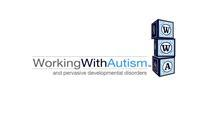Dr. Hilya Delband, Clinical Director, Psy.D., BCBA-D

Working With Autism
16530 Ventura Blvd.
Suite 510
Encino, CA 91436
About
Formed in 1997, Working With Autism and Pervasive Developmental Disorders is a leading organization specializing in the treatment of autism. Our treatment approach emphasizes
behavior modification, teaching new skills and appropriate behaviors through applied behavior analysis (ABA) and discrete trial training (DTT). We develop our individualized programs to capitalize on each child’s unique strengths in order to improve their adaptive functioning. Our comprehensive program specifically addresses the core deficits of autism
(behaviors, social functioning and communication) in order to appropriately foster development for individuals in this population. We strive to provide your child with the resources necessary to successfully achieve functional daily living skills, appropriate peer
relationships, and placement in an appropriate school environment. Ultimately, we want to help your child achieve their maximum potential, enabling them to access and adapt to as
many environments as possible.
The WWA program consists of two components: the reductive component and the teaching component. In the reductive component, various behavioral strategies are used to reduce or
eliminate maladaptive behaviors such as tantrums, self-stimulatory behaviors, unsafe behaviors, while teaching appropriate replacement behaviors.
The academic portion of the curriculum is divided into five levels:
- Beginning level program: basic receptive language and imitation skills are targeted.
- Intermediate level one program: expressive language and pre-academic skills such as colors, letters, and occupations are targeted.
- Intermediate level two program: includes more advanced syntax (e.g., negation, past tense action verbs) and beginning reading skills such as phonics and sight reading.
- Intermediate advanced level program: continues to develop reading and syntax, in addition to critical thinking skills.
- Advanced level program: targets emotional perspective taking, conversation training and functional social skills.
- Highly advanced level program: includes academic concepts such as addition, dictionary use and map skills, teaching theory of mind and empathy building.
Throughout each level of the program, functional daily skills are developed. This includes the basic self-help skills, such as potty training, eating with a fork, and dressing, as well as more advanced community participation skills, such as ordering and paying for food in a restaurant. In addition to functional daily skills, play skills and social skills are facilitated in order to help the child.
Dr. Hilya Delband, Clinical Director, Psy.D., BCBA-D
Working With AutismFormed in 1997, Working With Autism and Pervasive Developmental Disorders is a leading organization specializing in the treatment of autism. Our treatment approach emphasizes
behavior modification, teaching new skills and appropriate behaviors through applied behavior analysis (ABA) and discrete trial training (DTT). We develop our individualized programs to capitalize on each child’s unique strengths in order to improve their adaptive functioning. Our comprehensive program specifically addresses the core deficits of autism
(behaviors, social functioning and communication) in order to appropriately foster development for individuals in this population. We strive to provide your child with the resources necessary to successfully achieve functional daily living skills, appropriate peer
relationships, and placement in an appropriate school environment. Ultimately, we want to help your child achieve their maximum potential, enabling them to access and adapt to as
many environments as possible.
The WWA program consists of two components: the reductive component and the teaching component. In the reductive component, various behavioral strategies are used to reduce or
eliminate maladaptive behaviors such as tantrums, self-stimulatory behaviors, unsafe behaviors, while teaching appropriate replacement behaviors.
The academic portion of the curriculum is divided into five levels:
- Beginning level program: basic receptive language and imitation skills are targeted.
- Intermediate level one program: expressive language and pre-academic skills such as colors, letters, and occupations are targeted.
- Intermediate level two program: includes more advanced syntax (e.g., negation, past tense action verbs) and beginning reading skills such as phonics and sight reading.
- Intermediate advanced level program: continues to develop reading and syntax, in addition to critical thinking skills.
- Advanced level program: targets emotional perspective taking, conversation training and functional social skills.
- Highly advanced level program: includes academic concepts such as addition, dictionary use and map skills, teaching theory of mind and empathy building.
Throughout each level of the program, functional daily skills are developed. This includes the basic self-help skills, such as potty training, eating with a fork, and dressing, as well as more advanced community participation skills, such as ordering and paying for food in a restaurant. In addition to functional daily skills, play skills and social skills are facilitated in order to help the child.
Primary Specialty
Psychologist
Gender
Female
Services
Working With Autism is committed to being the leading provider for the treatment of autism and other pervasive developmental disorders. Our success derives from our ability to design and implement individualized in-home programs for every child as well as providing school-based services to accommodate the needs of each child.
At the core, all Working With Autism and pervasive developmental disorders clients rely on our unparalleled experience and expertise. Our expertise and success extends to all standards by providing an array of services which derives from our ability to design and implement individualized in-home programs for every child.
* Adaptive Skills
* Behavioral Services
* Functional Behavior Assessments
* Occupational Therapy
* Parent Services
* PEERS Social Skills
* Professional Consultation
* Infant Development Program
At the core, all Working With Autism and pervasive developmental disorders clients rely on our unparalleled experience and expertise. Our expertise and success extends to all standards by providing an array of services which derives from our ability to design and implement individualized in-home programs for every child.
* Adaptive Skills
* Behavioral Services
* Functional Behavior Assessments
* Occupational Therapy
* Parent Services
* PEERS Social Skills
* Professional Consultation
* Infant Development Program
Consumer Feedback
Add a Review
There are no recent reviews. Be the first!




